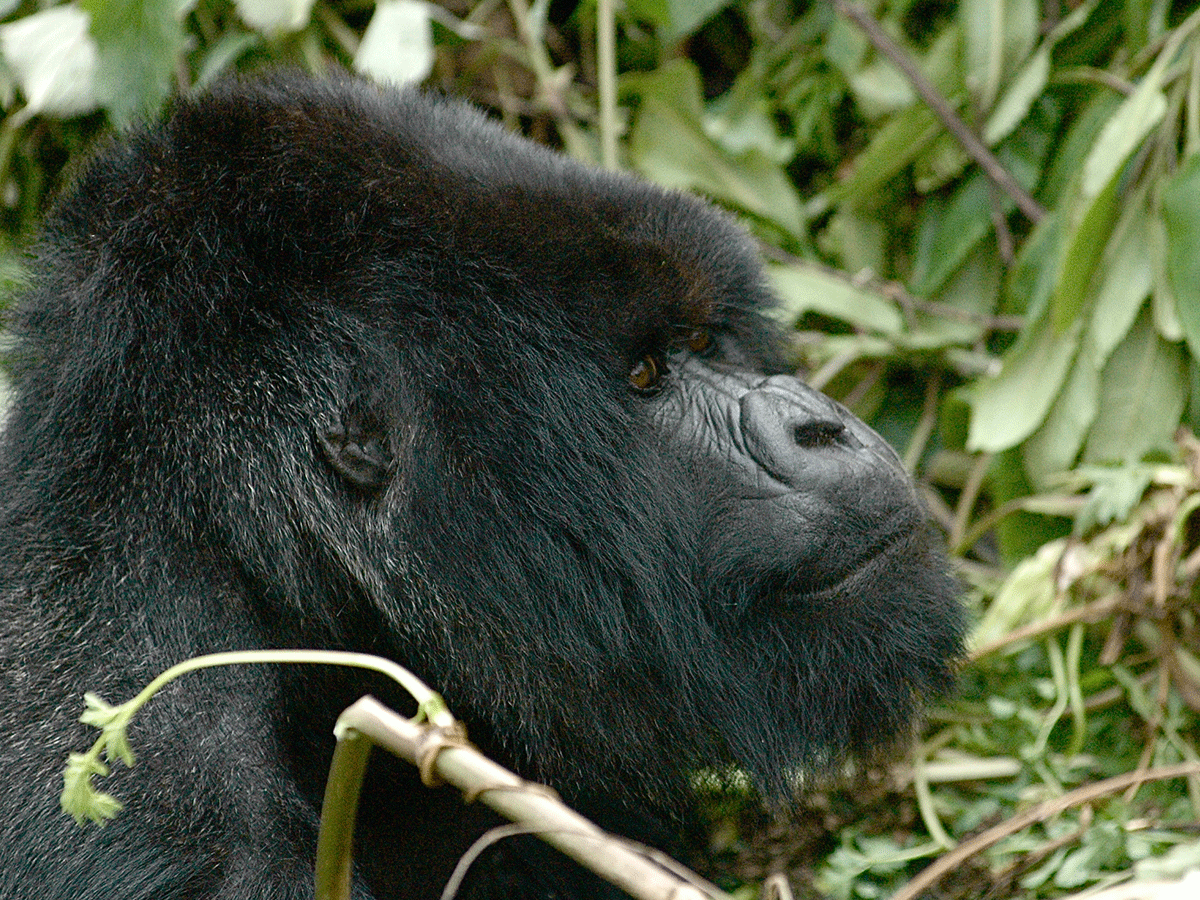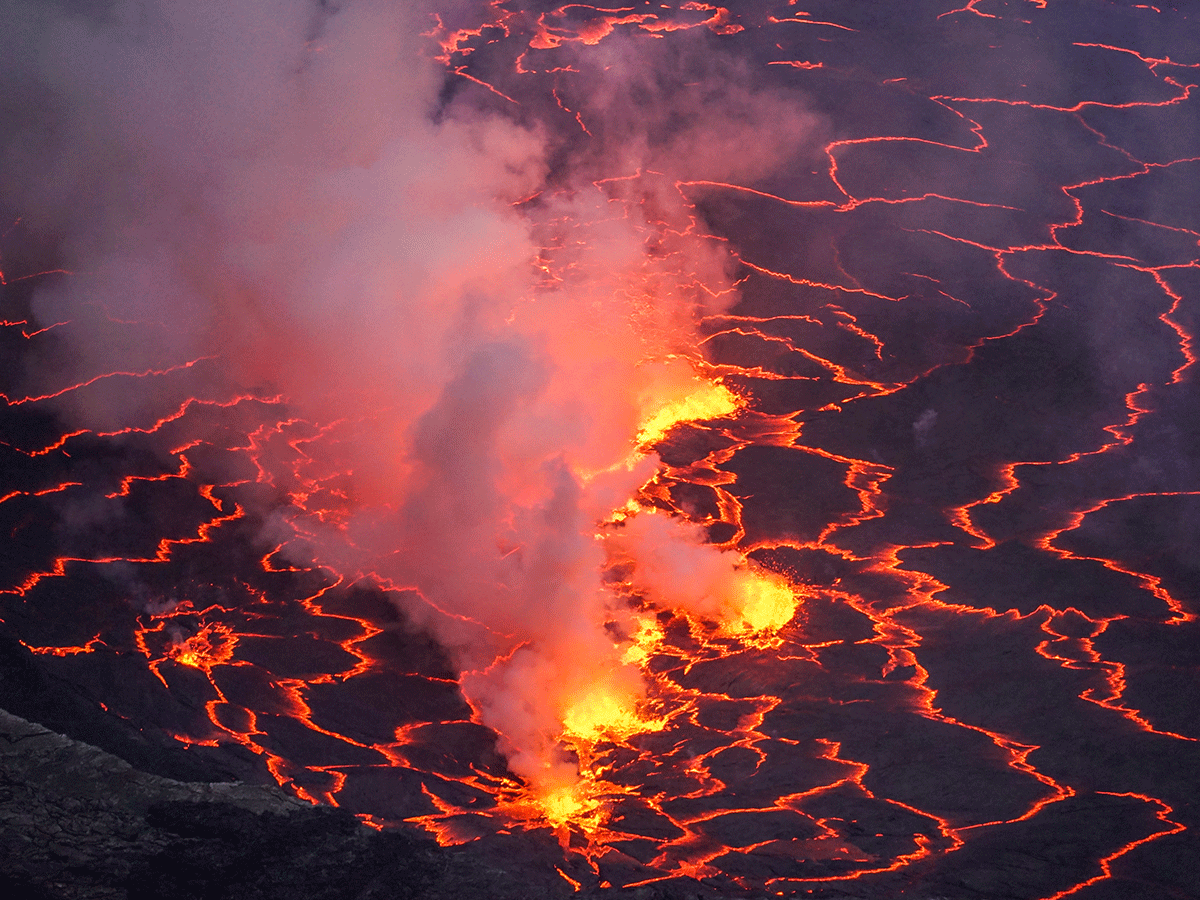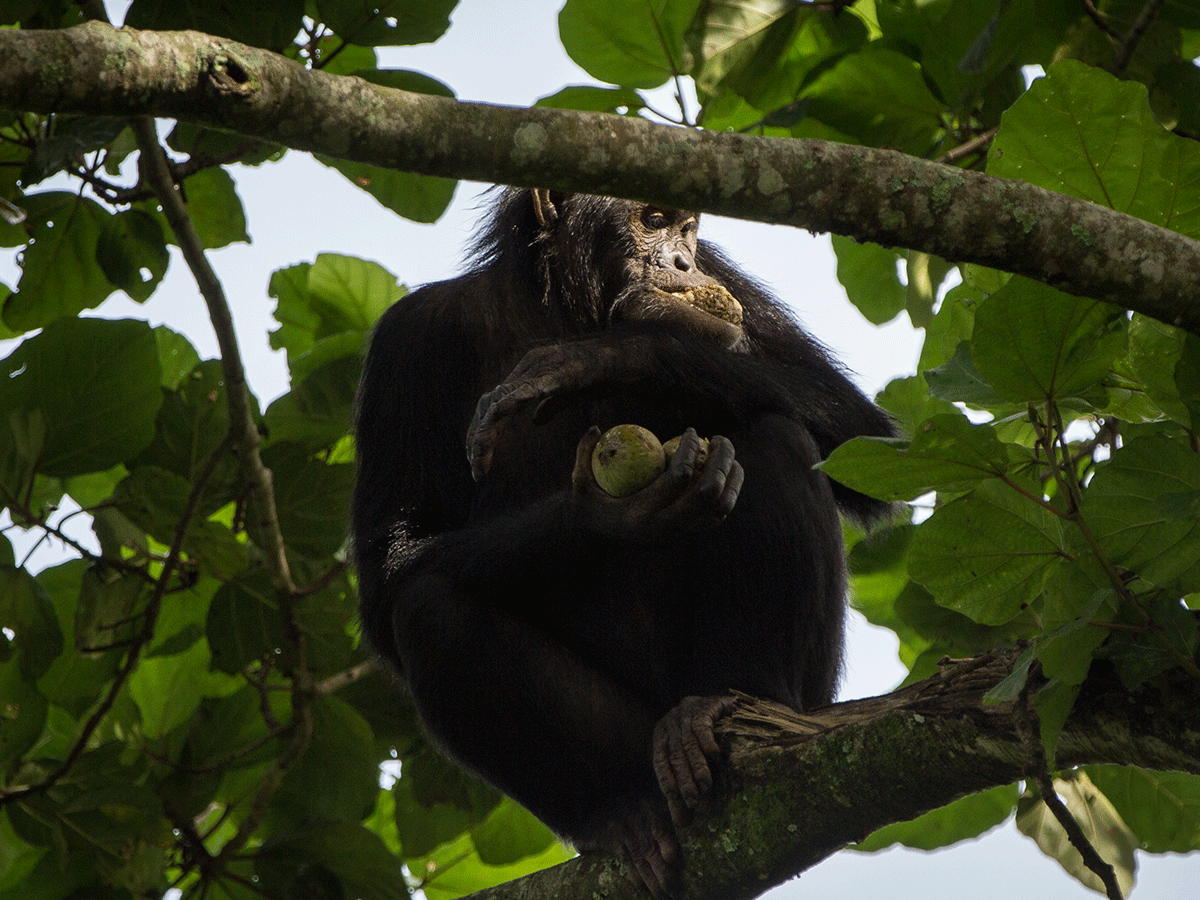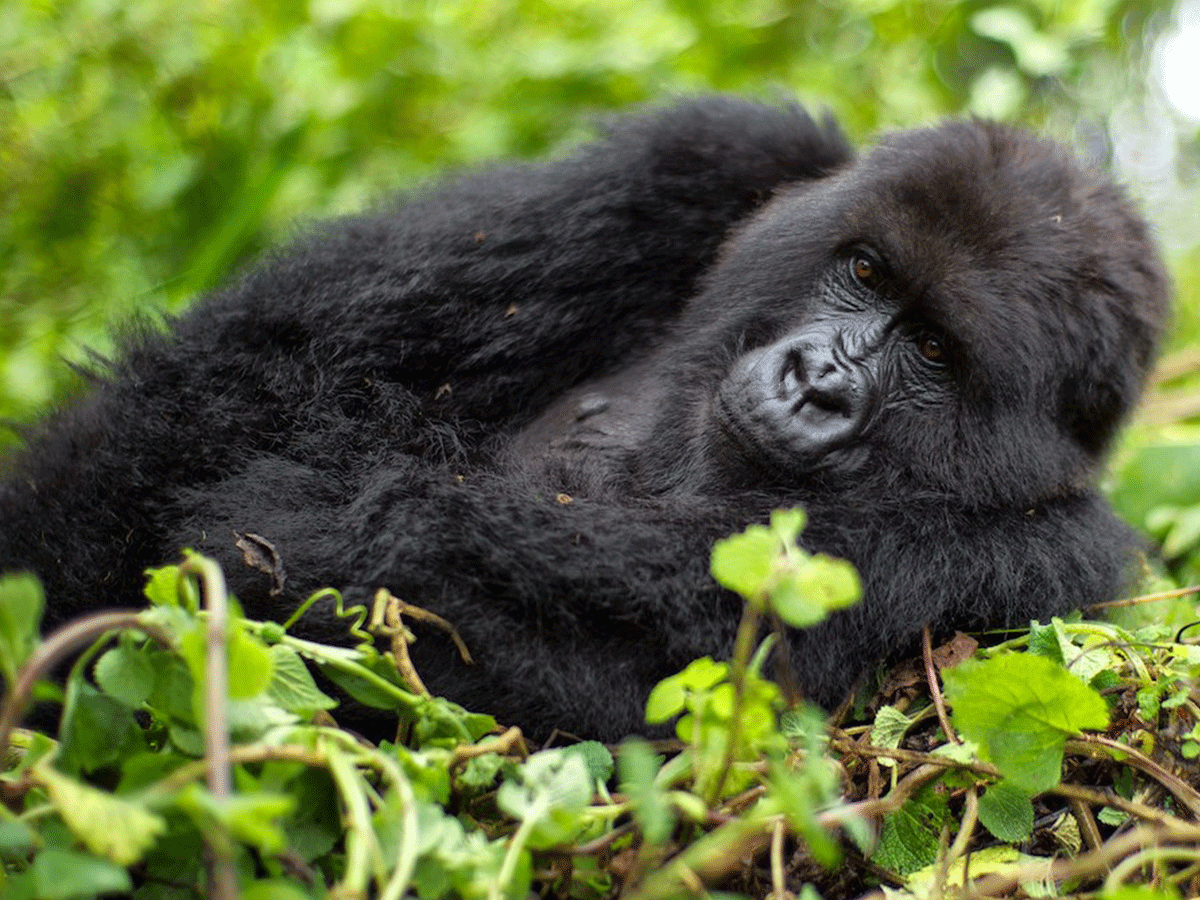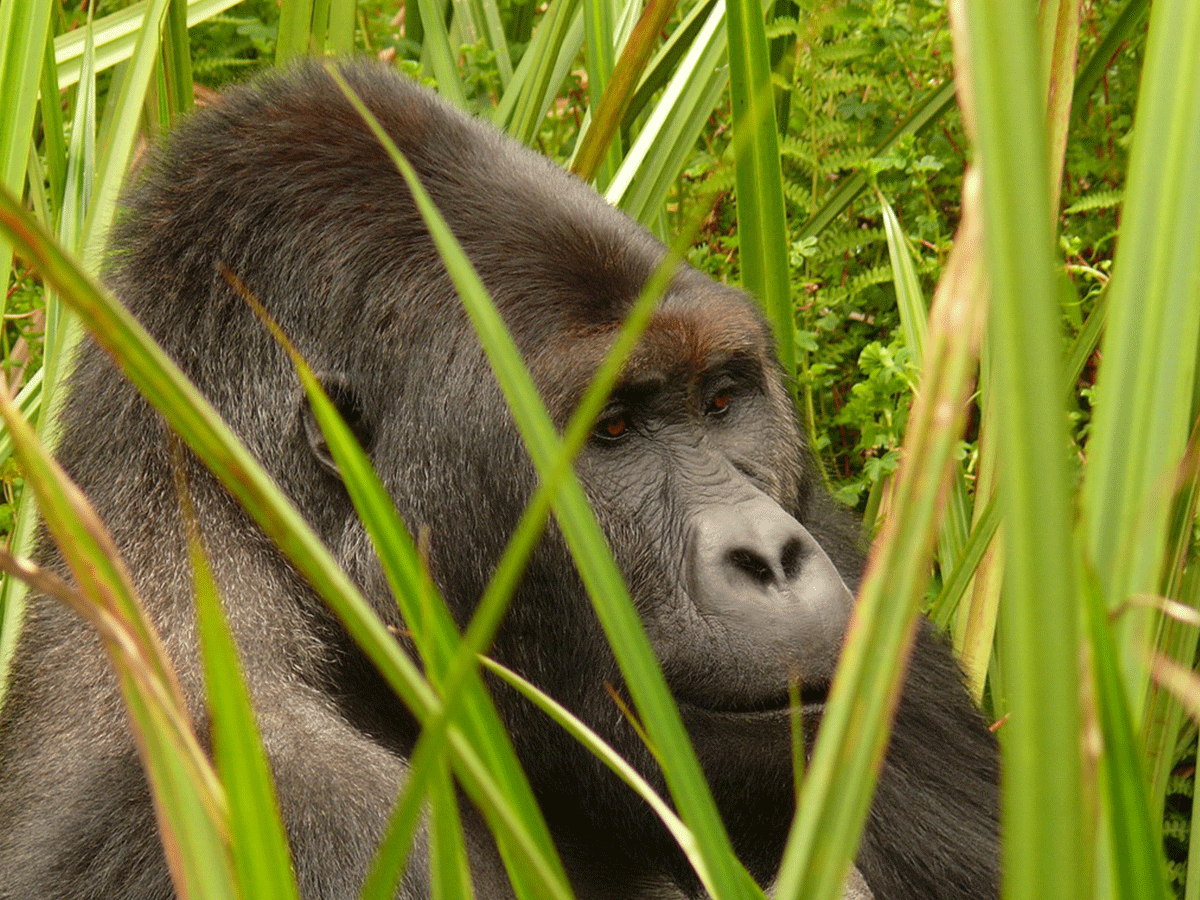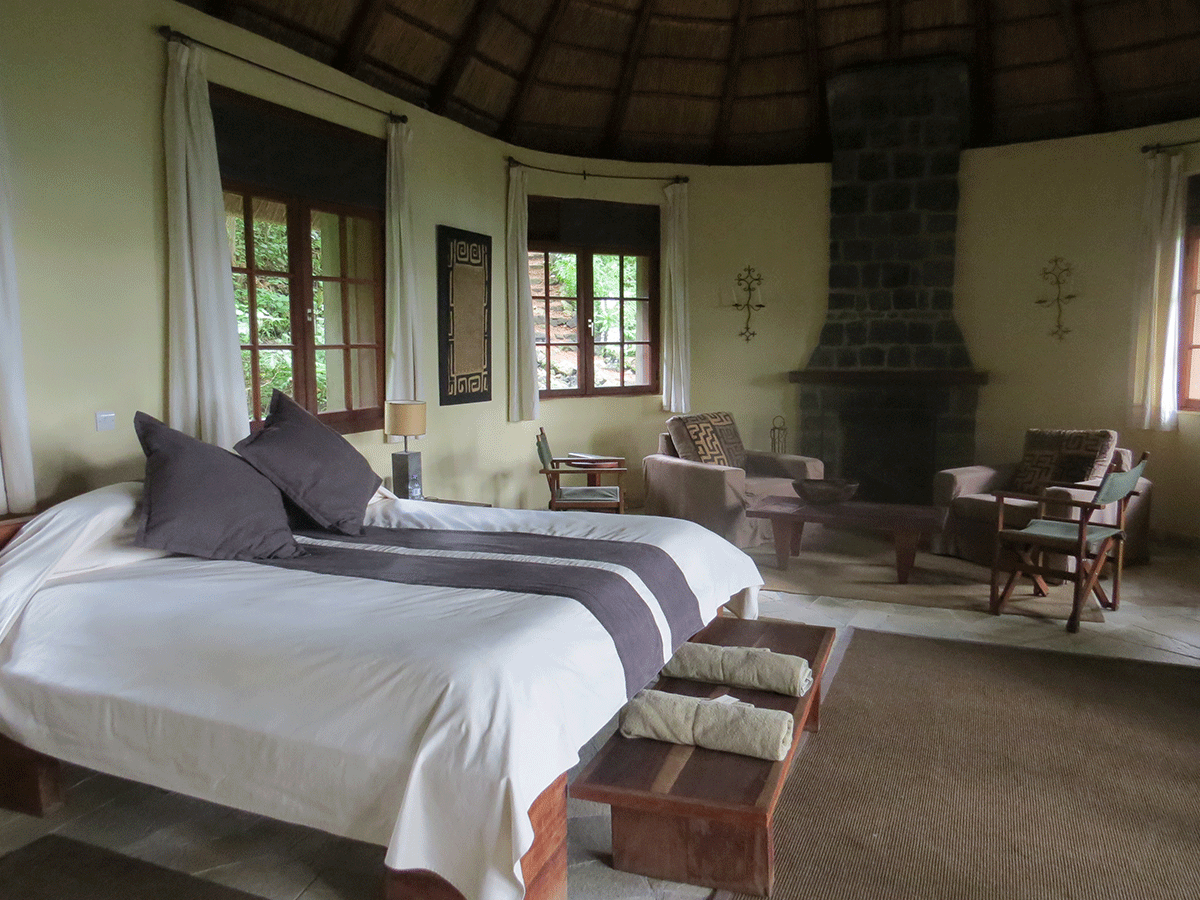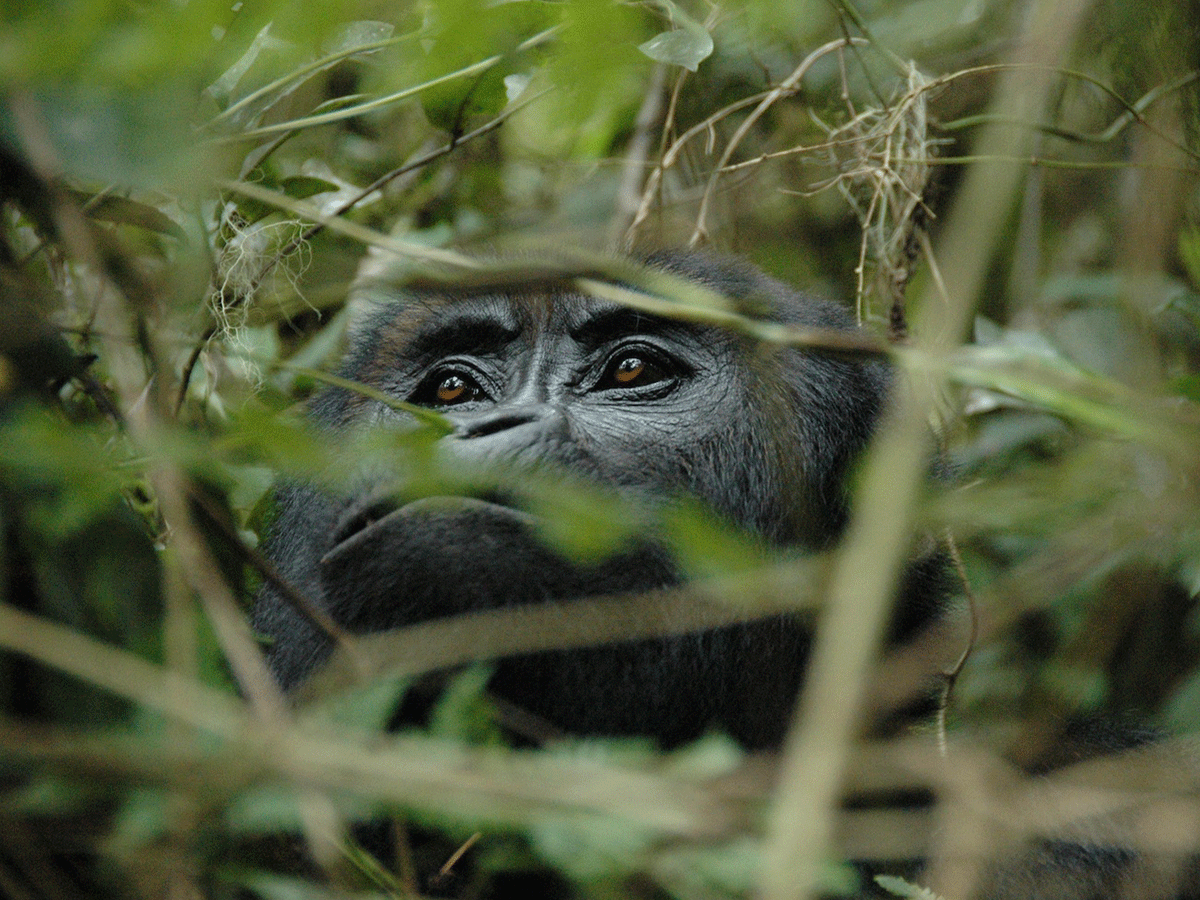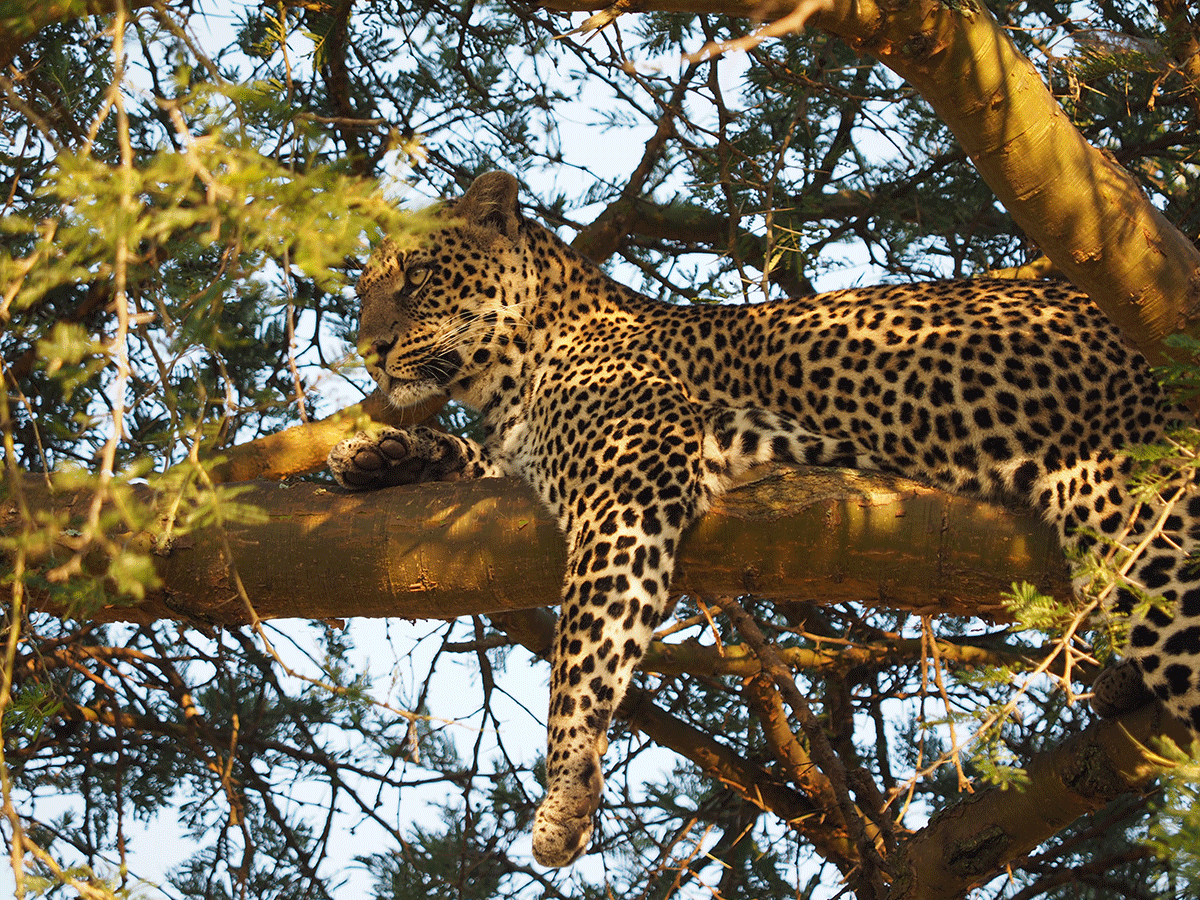DR Congo Safaris, Tours & Holidays
Home » African Safari Destinations » DR Congo Safaris, Tours & Holidays
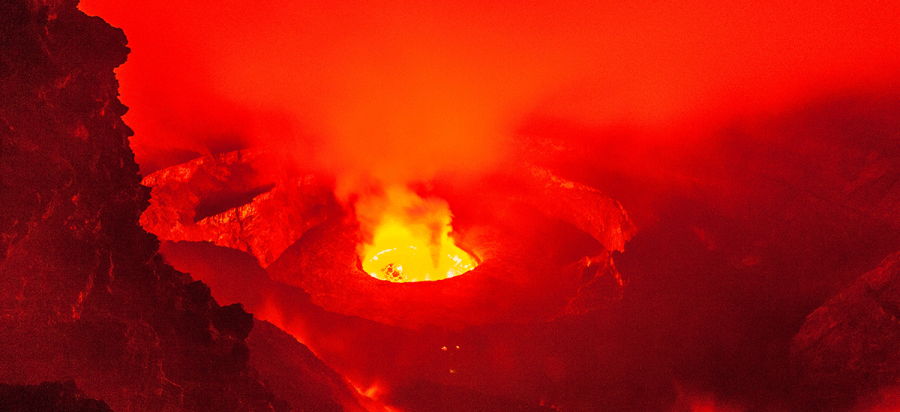
DR Congo Safaris, Tours & Holidays
The Democratic Republic of the Congo, also known as Congo-Kinshasa, DR Congo, the DRC, or simply either Congo and historically Zaire, is a country in Central Africa. It is, by area, the largest country in sub-Saharan Africa, the second-largest in all of Africa, and the 11th-largest in the world.
The Democratic Republic of Congo possesses a wealth of scenic highlights, ethnic diversity, and complex history. Inaccessible for many years due to conflict, the country once again draws adventurous and confident travelers looking for a different type of vacation. For those who can forego the usual home comforts and quickly adapt to challenging conditions, the rewards of a holiday in the Democratic Republic of Congo are numerous–trekking through unspoiled forests, spotting endemic wildlife, and meeting welcoming, inspiring people.
Dominated by the planet’s second-largest rainforest, which sprawls across hundreds of thousands of miles of the Congo River Basin, with glacial mountains and savannah elsewhere, the DRC is enormous and supports a staggering array of wildlife and cultures.
It’s no secret, of course, that the DRC has suffered tumultuous ups and downs over the course of its long history – a history that stretches back some 80,000 years. As was so often the case, with the coming of colonialism (in this case Belgian), the area’s wealth of resources led to conflict and systemic abuse, which, since independence in 1960, have continued to experience repercussions. Fortunately, the DRC is enjoying a period of considerable peace and stability, even in the historically volatile east, and the growth of tourism is only helping to consolidate; its economic and cultural benefits clear.
And that’s great news, as the DRC really is a stunning country. The second-largest African nation, it is also eleventh in the world overall, and within its gigantic area, there’s enough to keep the Africa-enthusiast busy for a lifetime.
How to get to DR Congo
Depending on where you are going and what interests you have but the most accessible parts of DR Congo are Kinshasa which has flights to N’Djili International Airport and Kinshasa International Airport, serves the city of Kinshasa, and is the largest of the four international airports in the Democratic Republic of the Congo (DRC), Virunga national park, Nyiragongo Active volcano and Kahuzi Biega which are easily accessible from Rwanda or Uganda.
Ground transport in the Democratic Republic of the Congo (DRC) has always been difficult. The terrain and climate of the Congo Basin present serious barriers to road and rail construction, and the distances are enormous across this vast country. Furthermore, chronic economic mismanagement and internal conflict have led to serious under-investment over many years.
On the other hand, the DRC has thousands of kilometers of Navigable waterways and traditionally water transport has been the dominant means of moving around approximately two-thirds of the country.
Passport, Visa, and Entry Requirements for DR Congo
The Democratic Republic of the Congo, also known as Congo-Kinshasa, is the largest country in Central Africa. If you are seeking luxury safaris, easy jungle tours, and an overall relaxing trip, the Democratic Republic of the Congo is probably not for you. However, if you are a seasoned traveler, speak one of the many local languages, or have a competent tour guide, you will manage just fine. Whatever brings you to this tropical nation, you are sure to have an exciting trip.
Note that the Democratic Republic of the Congo (DRC) is not the Republic of the Congo (AKA Congo-Brazzaville).
When it comes to the Democratic Republic of the Congo’s visa policy, things are pretty clear. Almost all travelers must obtain a visa from one of the diplomatic missions of the Democratic Republic of the Congo unless they come from a handful of visa-exempt countries or they are eligible for a visa on arrival. Only the citizens of Burundi, the Republic of the Congo, Rwanda, and Zimbabwe can enter the Democratic Republic of the Congo without obtaining a visa for stays up to 90 days. The only travelers eligible for a visa on arrival must come from Kenya, Mauritius, or Zimbabwe.
Please note that not all countries in the world have a diplomatic mission of the Democratic Republic of the Congo. If your country has an embassy, you are authorized to receive visa confirmation of a 7-day visa on arrival. If this is the case for you, you can extend your stay after you have arrived in the DRC.
Furthermore, since the Virunga National Park is the nation’s most popular attraction, the government allows the park itself to facilitate the issuing of visas. As a result, tour operators can often submit your application for you.
As far as the visa requirements are concerned, it depends on your particular travel situation and country of origin. We recommend that you contact the embassy itself for the most up-to-date information. While internet info is vast, it is not always the most reliable. What you will certainly need is a passport valid for at least 6 months after your date of arrival in the Democratic Republic of the Congo. Moreover, you must provide a legalized letter of invitation from a person or organization in the DRC. If you go there for tourism purposes only, you’ll need a hotel confirmation.
The health sector of DR Congo
The private health sector is an important source of health services in the DRC. Private facilities account for 44 percent of outpatient care and 25 percent of inpatient care (Wang et al. 2016). Eighty percent of facilities offering basic surgery are private (MOH 2014b)
It’s a must for a traveler traveling to DR Congo to purchase travel and medical insurance as evacuation in case of any problem can be difficult but for more information please contact Wilderness Explorers Africa for updated information before planning a safari to DR Congo
The currency of DR Congo
The national currency in DRC, the Congolese Franc (CDF), was created in 1997, replacing the Zaïre, the currency used by the country under the rule of Mobutu Sese Seko.
Official Language of DR Congo
French is the official language and widely used in education and government institutions however there are four national languages of the Democratic Republic of Congo which include Kituba (Kikongo), Lingala, Swahili, and Tshiluba.
Best time to travel to DR Congo
The best time to travel to DRC is during the long dry season from May to September, with July markedly the driest month, followed by June. The temperature also drops ever so slightly during these months.
What to wear in DR Congo
Travelers to the Democratic Republic of Congo should make sure their clothing choices offer them coverage against insect bites. For this reason, it is recommended that travelers bring light long-sleeved shirts and pants, closed-toed shoes, and a good sun hat.
What to bring for a safari in DR Congo
Camera
Imagine striking your imaginations with a huge silverback mountain gorilla with its family in the wilderness of the Virunga National Park and you do not have a camera to take photos and you simply watch your colleagues do it.
It really hurts because you won’t have anything to show your colleagues whom you left back home and even you won’t have something to keep as part of your records. You need to have a better camera and should not have a flashlight and if it does, while taking photographs of the gorillas, you are advised to turn off the flashlight as it can irritate these endangered species something that may cause problems to you.
GPS navigation system
The Global Positioning System is also an important gear that helps travelers trace different areas and new destinations at ease as it comes along with a map. Prior to traveling to a new destination, make sure that you have packed an up-to-date GPS navigation system along with you and you won’t have challenges looking for main, rural areas in any destination of your choice. If you cannot get one, you can book a car with GPS in any tour company of choice and you will have a chance to explore different areas with minimal challenges.
Power Bank Portable Power Supply
In case you are planning to pay a visit to the DRC, make sure that your devices are fully charged as you may find it challenging to charge in most of the remotest parts of the country. Alternatively, you can come along with a portable power bank with USB chargers to assist you to keep your phones or tablets on at all times. They come in various sizes, shapes, colors that suit all visitors’ interests. Make sure that they are compatible with your type of device especially the output voltage.
Laptop or tablet device
You may need a portable laptop specifically a candid laptop or iPods to help you post all that you encountered to your friends, families back home as a way to motivate them also to visit this remarkable destination. It will also help you to keep up-to-date events in new destinations and especially for cases of emergencies. And never leave out the adapters or power bank to assist you in case the battery goes low.
Personal Wi-Fi hotspot
You may need to keep yourself on the internet and in most cases, you may not find access in most of the rural areas in Africa. This means that carrying your own Wi-Fi hotspot will help you have access to the internet while even in remote areas.
Luggage tracker
You need a luggage tracker to assist you to locate any lost property just in case of misplacement. The luggage trackers are usually made with advanced micro-electronics and ground-based cellular telephone technologies that make tracking and reporting locations very easy. Never leave out this important gadget as it will improve your transfer from one area to another.
Car hire and Driving in DR Congo
In DRC, vehicle theft and car-jacking are regular occurrences. You should drive with the doors of your vehicle locked and windows closed at all times. DRC’s security forces operate roadblocks, particularly after dark. … Even if you locate a company that will let you self-drive it’s really not advisable.
Tipping while in DR Congo safaris
Tipping is best done by cash that’s why you have to change a few dollars to the Congolese franc (CDF) if you expect to tip anyone. For places with tip boxes, it’s the best way to tip and if you would love to offer dollars this can be for the safari guides since they have more frequent access to the Forex bureaus.
For whatever reason, you decide to offer a tip to someone while on a safari in DR Congo it’s all about your own will there’s no order for who to give a tip. On how much you can offer, you can decide from the quality of service offered in comparison to other people you came along with or just offer in a bid to give back to the community. However, before you tip, measure the potential impact of the tip on the community. The tips received by the people who help around could create a great positive impact since their earnings increase and therefore their standards of living too.
Further information for DR Congo
We strictly recommend private guided safaris in DR Congo as of now as there is a lot of inconveniences that travelers go through while accessing DR Congo and our private Guide will deal with that and you can relax and enjoy the Adventure.
Safety of DR Congo
Violent crime, such as armed robbery, armed home invasion, and assault, is common, and local police lack resources to respond effectively to serious crime. Assailants may pose as police or security agents. Demonstrations are common in many cities and some have turned violent.
However, if you want to travel to DR Congo for a safari please book with an African safari operator, not a local operator due to the fact that international emergency response is required in case of any problem for any inquiries please contact wilderness Explorers Africa for updated information.
SAFARI TOURS AND HOLIDAYS
NATIONAL PARKS
FAUNA & FLORA
| Wildlife |
| Birds |
| Vegetation |

